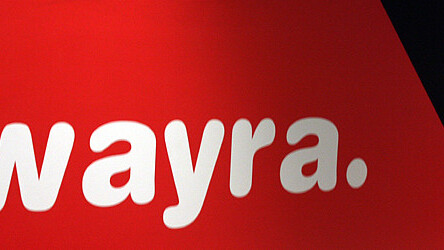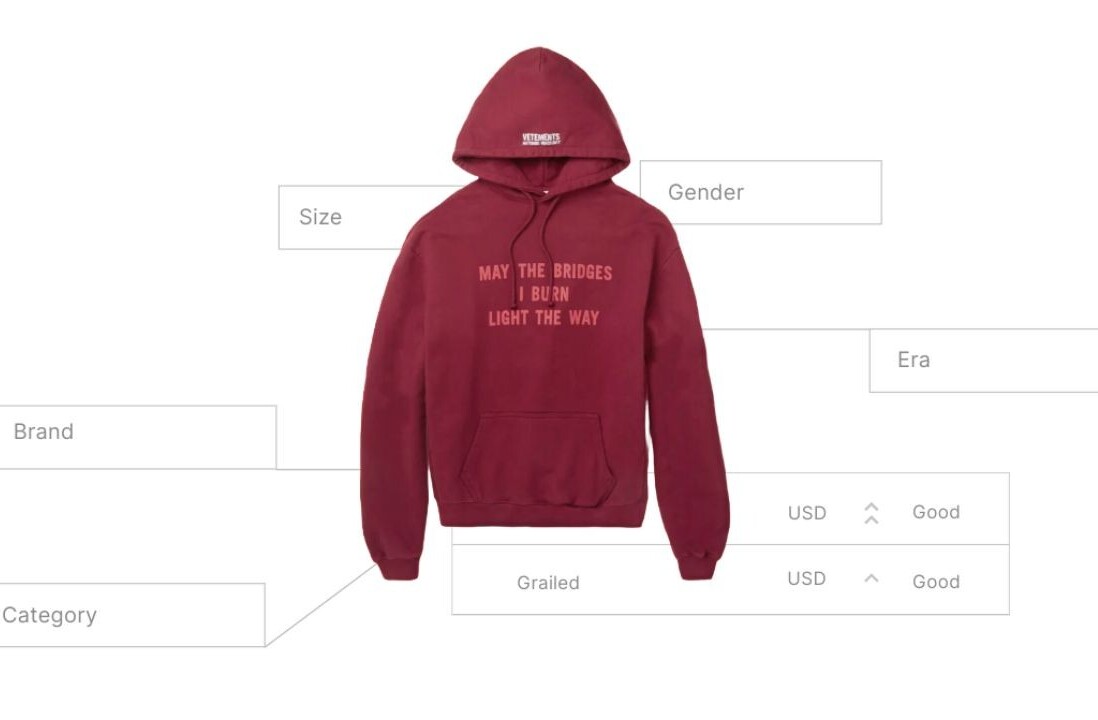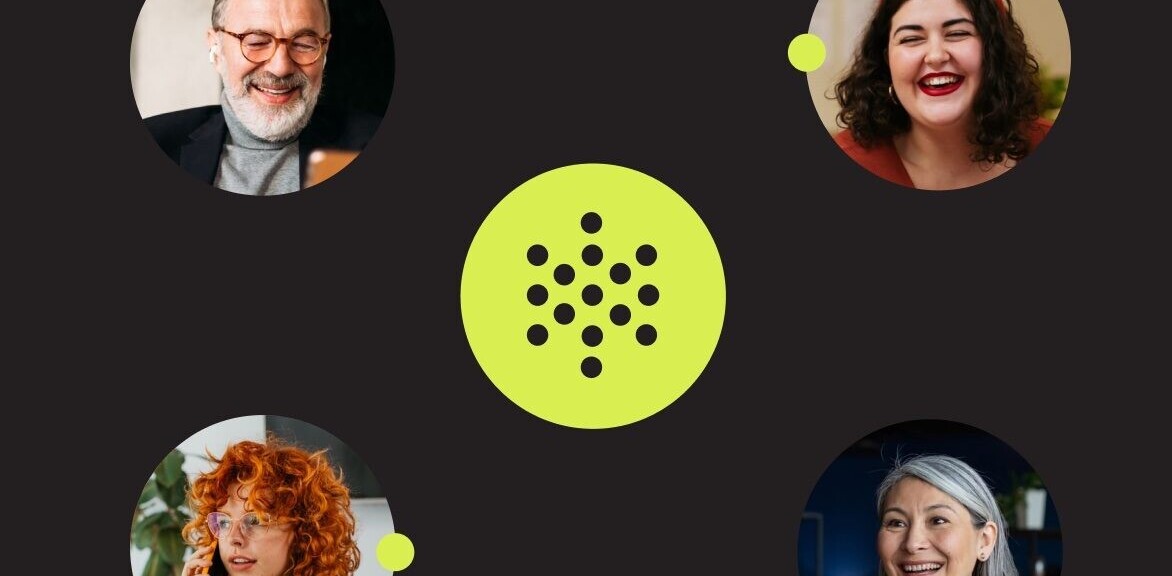
Getting any startup off the ground is no mean feat so bagging a place on an accelerator is a neat way to speed up the process and gather skills in a nurturing environment.
As we reported last month, Wayra, the technology accelerator of O2’s parent company, Telefónica, took on 16 startups for incubation.
All of the businesses are located in the Wayra London Academy. It’s a big open working space with plenty of opportunity to work together as well as develop their own paths.
 The program will run for at least six months with the possibility of extension for those businesses which could do with more time. Academy Director at Wayra UK, Ashley Stockwell is working with the teams to help them develop. He points out that the businesses are at varying stages from initial ideas turning into businesses, to more established products that are heading for launch and marketing.
The program will run for at least six months with the possibility of extension for those businesses which could do with more time. Academy Director at Wayra UK, Ashley Stockwell is working with the teams to help them develop. He points out that the businesses are at varying stages from initial ideas turning into businesses, to more established products that are heading for launch and marketing.
“By Christmas they should all have launched,” Stockwell says. “Even if it is just in beta, we hope that they will all be ready to demonstrate to investors and raise funding.”
While we may only be in July, the next few months will pass quickly for these new businesses. We’ll be tracking their progress as they head toward investor day, so here are the initial thoughts from seven of the teams as they settle in to their new surroundings.
Epicurely is a platform for organising dinner parties or shared meals. As the company puts it, “‘Come dine with me’ meets ‘AirBnB'”. If you like to break bread with others, it’s a neat way to sort things out.
Users plan their gatherings by type – picnic, food at a football game or a late night supper maybe, then they can portion out what is needed as well as inviting others to join them. So, you bring the vodka, I’ll bring the cake and the others can bring the ingredients for the main course.
CEO Santiago Tenorio says that he is wearing multiple hats at this stage. Setting up bank accounts, getting legal paperwork into ship-shape and working on marketing material. His cofounders are still in New York and Amsterdam working on until the end of the month when they can join him in London.

Hiring is one of the tasks on the go a the moment and Tenorio has just taken on help with PR and he’s looking for a developer.
“We weren’t thinking about applying to incubators, but I heard great things about Wayra from my friends in Colombia,” says Tenorio. “I think it fits our international profile, we have a strong network in the US, but we hope to expand in Argentina, Brazil and Europe.”
Working at the Academy has brought Epicurely support that hadn’t yet identified. “It finally feels like we have the backing we needed,” says Tonorio. “I wasn’t sure how much help we might need. You try to be disciplined working from home or out of cafes, but here you are so much more productive.”
No doubt the Epicurely team is popular in the Academy already, as Tenorio points out, “We can offer the other Wayra teams great food.”
TrueView is a smartphone application that is working on fixing all the wrong in online dating. Profiles are built around existing social media accounts and so they naturally update in a timely fashion.
“Old profiles fall out of date,” notes Matt Verity, creative director. “Profiles in real-time mean that users can spark up conversation that is more relevant.”
Verity, business director, Andrew Ibbotson and Damian Mitchell, technical director have settled in and pretty much redecorated their corner of the Wayra Academy space.
It’s no wonder the team has taken so well to their new habitat as they mentioned working previously around Mitchell’s dining room table and having to approach the work outside of already hectic day jobs.

TrueView has also made strong connections with FourSquare, one of the ways in which users can add details (but not location, they hasten to add) to their profile.
The company feels that not only has working with Wayra already given them a place to focus on work but also invaluable exposure and PR that can only help the product fly.
2nd Sight is a smartphone solution for blind people. The startup was formed out of an academic project and aims to be ‘a swiss army knife for the blind’.
2nd Sight has a task on it hand. As CEO Tine Poštuvan points out, it’s not as though the service can have optional offerings or only work for email or phone functions, the whole idea needs to be useful across the board for smartphones.
The problem of mobile fragmentation is also a hard one, but it’s impressive to see a startup taking this on with enthusiasm – and a host of various smartphones all over their desk.
2nd Sight had looked at other incubators in the past, but noted that an accelerator with built-in telecommunications would be a wise choice for its line of work.

The team has moved into London and found that working in a shared space with other teams has been very helpful. They were aided by other companies on the program to find somewhere to live. “For us as foreigners it’s really cool as we can meet a lot of people in this open area,” says Poštuvan.
The team now shares a house, but they admit that this can mean working at the Academy as well as continuing to work at home. “This is not work anymore. It’s part of you,” says Luka Topolovec, developer.
This ethic seems to tally with the other teams on location, but as it is early days in the acceleration process, it’s hardly surprising that a 24/7 approach is evident while things are exciting and new.
Chatterbox tracks and measures conversations in social media. It uses some pretty smart methods to track down sentiment and timing. The team comes from an academic background and has put its research to good use to solve problems that brands no doubt find hard to work on as more companies engage with customers on social platforms.
“This is the first accelerator we applied for,” says co-founder Dr Stuart Battersby, “Working with Wayra means that we can work with big brands that have a lot of traffic for us to work with.”

“We both have backgrounds in academia,” says Dr Battersby. His co-founder Dr Matthew Purver still works in academica but admits he has been tempted to go for Chatterbox full-time. “It’s very different being here,” says Dr Purver. “It’s not that one is better than the other, but in academia I am surrounded by students and here I am surrounded by other startups and I can focus on one thing to get stuff done.”
Having a professional environment also means that the company can open up to visitors, “We now have a place where we can work where we can also do recruitment and have meetings,” remarks Dr Battersby.
Pollarize.me is a free mobile decision-making tool that can help with A/B questions. It is designed to be shared on social platforms so those enquiring minds who need to know can get more people to answer their query.
CEO and co-founder Mat Munro remarked on the process of switching to being in control of a business instead of working for someone else. “A couple of weeks ago I had the blind panic of leaving regular employment. It’s exciting but at the same time there are bills to pay and drinks to be drunk and they all require cash.”

He worked smart though and saved money from his last contract to cushion the landing. “I think that the more you can save, the further any investment can go and the longer you have to either achieve revenue or raise more funding. Eat lots of noodles and beans on toast,” Munro recommends.
The company is developing its mobile application which it hopes to launch in August. From its beginnings as a London Startup Weekend winner, Pollarize.me is adding depth to its service and the team is working hard on authority algorithms to expand the service in interesting ways.
Munro has only been working at the Academy for a couple of weeks but he says that the change has been beneficial. “We are at a very early stage,” he explains. “But it’s good to be all together to focus and work on this without external distractions. It’s also great to have the other teams around to talk about what you’re doing.”
Night Zoo Keeper wants to create a digital experience that offers kids as many options to get creative as a blank sheet of paper combined with their imaginations. Charmingly the Night Zoo Keeper site says, “Together, we will answer the question: what do animals dream about?” A noble cause indeed.
The service is a social, educational and entertainment website for kids aged between 5 and 11.
Education director Paul Hutson says that the team looked into accelerators and chose to apply at Wayra because of the convenient location. “We’d been on this full-time for five or six months so we hit the ground running,” he says.

Working at the Academy has brought many benefits to the company, Hutson explains, “We were all working from home. Which is okay but you haven’t got a network around you that you can call on for even the smallest bit of advice. Here you are in an environment where people can tell you which events you should go to and who you can talk to.”
The methods at the Wayra Academy also seem to suit the independence that businesses need to develop. Though there are options for the teams, there is also some flexibility. “One of the things I’ve liked about this so far is that with the events there is no pressure to be there,” says Hutson. “There’s not a hard and fast timetable of events that you must go to.”
Task Hub is a peer-to-peer marketplace for jobs and errands. The company says that it wants to ‘bring communities together and create micro economies, one task at a time’.
Users of the service can state what they want, where they are and how much they want to pay for something to be done. Background checks make the service a bit safer, especially if you need something done around the home. The options for tasks seem to be pretty open, from dog walking, decorating, cooking, cleaning or moving house for starters.
Aurore Hochard COO was finishing law school as she began work on the startup and Rahul Ahuja CEO also worked two jobs to get the idea going. “It was for a dream,” sayas Ahuja. “So it’s not hard to find the motivation.”
Hochard and Ahuja met in the US and they are a couple as well as working on their business. This balance means that the temptation to continue to work at home is very strong. “We promise to each other, today we will go home to no iPads, Macs and cell phones, but two hours later you are on Twitter,” says Ahuja.
“That’s the nice thing about this office,” says Hochard. “Because we live together we’d wake up and not even say good morning because we were online. But working here we have changed our setting. It’s a good thing to be physically here.”
So how do they cope working together as well as being domestic partners? “One of the things that happens with couples is competition,” says Ahuja. “But we don’t work like that. There is no competition and we have no doubt about our value, so this works for us.”

Working in the accelerator has opened up opportunities that the company admits would have taken much longer going it alone. “They know so many people and they can introduce us to lots of people who are interested in mentoring us,” notes Hochard.
The process has also made Task Hub realise that business can be about give and take. “There’s so much we can offer to others that we didn’t realise,” says Ahuja. “We didn’t know that we had the ability to offer things to say, charities or others who can benefit from our services.”
The general feeling at the Wayra Academy was one of energetic optimism. As the beginning of the process it is not surprising as teams get to know each other, their learning curves extend and thrill of new plans and possible expansion appear on the table.
It’s a good reminder to anyone who decides to control their own company. It will definitely dominate your life and the hours will be long and hard, but in the end, there’s a lot of excitement, achievement and fun to be had along the way. Working with others in an accelerated environment appears to be drawing that out at this stage.
We’ll be dropping in on the teams again in a few weeks, so don’t forget to check in and see how they progress.
Get the TNW newsletter
Get the most important tech news in your inbox each week.




